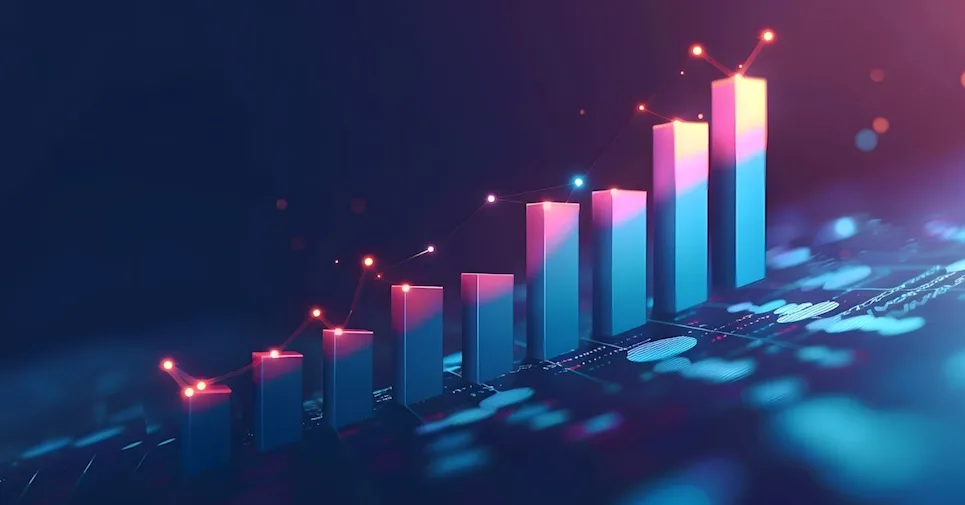AI Is Transforming Businesses, While 65% of Owners Say The Impact Is Years Away
Posted: 09/27/24

It is no exaggeration to say that artificial intelligence (AI) has taken the world by storm, especially since the release and rise in popularity of ChatGPT. However, 65% of business owners say they don’t think AI will substantially impact their businesses for several years.
According to the Business Owner Imperative research report, 34% of business owners say they don’t think AI will impact their business for 3-5 years, 29% say they think it will take 6-10 years and 2% say it will take up to 15 years. Only 15% say it has already had a substantial impact.
Are they right? Is the impact of AI for businesses still years away? If they are wrong, what are they missing out on?
According to Forbes, businesses are already using AI to save both time and money in areas such as customer support, cybersecurity, content production and fraud management.
AI can also optimize human resources (HR) processes and improve employee experience (EX). When we surveyed HR leaders in January 2024, 80% told us they already leverage AI to assist with several areas, including benefits administration, employee development, employee onboarding and recruitment.
How AI Tools Support HR Teams and Employees
Here are some of the ways AI is supporting everyday HR responsibilities while also improving EX by streamlining processes and improving decision-making, which also helps drive better business outcomes.
Talent Acquisition
Recruiting teams use AI in a myriad of ways to find and acquire good talent. This is actually one of the first ways HR teams started using AI, according to a report by SHRM.
First, they can use generative AI to write compelling job descriptions that will attract the right people. AI can also be used to match candidates whose resumes most closely align with the requirements in the job description. Some tools will even rank candidates so the talent acquisition team can know who to prioritize in the interview process.
Improve HR Communications
AI is helping both HR and employees save time by answering frequently asked questions via self-service. Think of the workforce having their own personal HR assistant to answer common questions about paid holidays, paid time off, help with resetting passwords for online portals or updating direct deposit information.
With an AI-powered chatbot that employees have access to through the messaging platforms they already use, such as Microsoft Teams or Slack, HR teams can get time back in their days to focus on more strategic initiatives.
Learning and Development
Employees want learning opportunities so they can grow in their careers, which helps drive business growth. Investing in learning opportunities can also help retain top talent.
HR teams can use an AI-powered learning management systems (LMS) to filter course options and create custom learning paths for each employee. These platforms may also include AI-powered quizzes to ensure the material has been mastered, and the ability for HR and managers to develop insightful reports.
Solve Problems and Provide Insight
AI tools are also being leveraged by HR to catch payroll errors, improve the benefits experience and track essential key performance indicators (KPIs), even forecasting trends to help business leaders make better and faster decisions. With analysis on both employees and industry, AI-powered analytics can help companies know where they are succeeding and predict how incremental changes can impact things like productivity, engagement and retention in the short- and long-term.
Bottom Line: Employees and Businesses are Ready for AI
The good news is both employees and employers are ready for the future. Our June survey found that despite most business owners believing the substantial impact of AI is still years away, 90% are ready to leverage AI, and 84% said they believe it presents an opportunity for their business. Only 14% said they see it as a threat.
Employees seem to agree. In 2023, for instance, we surveyed more than 2,000 full-time employees to learn their thoughts about using AI tools at work. We learned that 70% are open to using AI tools similar to ChatGPT. They also see that AI has the potential to enhance their work environment, with 68% saying that they believe AI will improve the EX. What’s more, 66% said they would look favorably upon their employers if they used modern AI capabilities to improve their experience.
What all this data suggests is that AI is already transforming various aspects of business operations, from customer support to HR processes. With both employees and employers showing readiness and enthusiasm for AI integration, there is no reason to delay taking advantage of these powerful tools. As AI continues to evolve, businesses that delay adoption risk falling behind in a competitive marketplace.
AI is playing a pivotal role in shaping the future of HR, but there are many other opportunities on the horizon. Learn more by reading the Business Owner Imperative report in full.
AI Built for HR Leaders
Discover how AI simplifies daily HR tasks, improves accuracy and gives you more time to focus on people.
Author: Allie Howen
Related Posts

5 Broker Trends Shaping Advisory Work in 2026
Client demands are changing fast. These five trends show how broker priorities are shifting across compliance, tech and workforce planning and what it means for advisory work today.
Read the Blog
A Year in Review: Focusing on What Matters Most in 2025
Explore the key enhancements introduced across People Cloud and the priorities that shaped them, from employee support to clearer, more confident decision-making.
Read More
Talent Acquisition Software: A Buyer's Guide to Smarter Hiring
Discover how to select talent acquisition software that streamlines HR workflows, improves candidate experience and supports long-term growth. Learn five key steps for smarter hiring decisions.
Read More